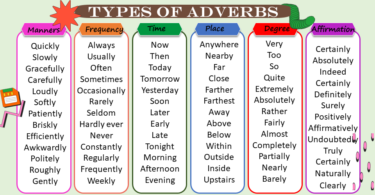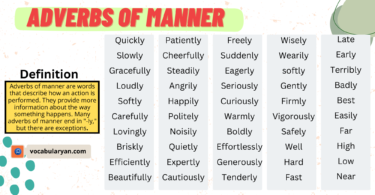Words list of antonyms with examples helps learners build a stronger English vocabulary by understanding opposite meanings clearly and effectively. This guide includes commonly used antonym pairs like “hot–cold” and “happy–sad,” with simple example sentences for each. Knowing antonyms supports reading, writing, and communication skills in academic and daily use. It’s especially useful for ESL students and beginners who want to improve word power, sentence formation, and overall language clarity. Each word is easy to remember, making English learning more structured and meaningful.
Opposite Words of Long
When describing something that isn’t lengthy or extensive, the following antonyms for “long” are useful:
- Brief: Something short in duration or length.
- Concise: Clear and to the point.
- Compact: Small or tightly packed.
- Shortened: Reduced in length or duration.
- Terse: Brief and abrupt in expression.
- Curt: Rudely brief.
- Succinct: Expressed in a few words.
- Laconic: Using minimal words.

These words are ideal for contrasting anything described as prolonged or extended.
Opposite Words of Soft
To describe something as firm, solid, or unyielding, consider these antonyms for “soft“:
- Hard: Solid and resistant to pressure.
- Dense: Tightly packed or concentrated.
- Stiff: Rigid and inflexible.
- Resilient: Able to withstand pressure without deformation.
- Rigid: Not bending or flexible.
- Sturdy: Strongly built and durable.
- Taut: Stretched tight, not slack.
- Bulky: Large and solid in form.

These words can describe physical objects, materials, or even abstract qualities like demeanor.
Opposite Words of Expensive
For instances when you need to convey affordability or low cost, the following antonyms for “expensive” are helpful:
- Affordable: Within one’s budget.
- Budget: Designed to be economical.
- Discounted: Offered at a reduced price.
- Thrifty: Using resources carefully to save money.
- Economical: Cost-effective.
- Dirt-cheap: Extremely inexpensive.
- Low-priced: Offered at a minimal cost.
- Modestly priced: Reasonable in cost.

These words are especially useful when discussing products, services, or investments.
Opposite Words of Giving
When referring to actions that involve withholding or retaining, the antonyms for “giving” include:
- Keep: Retain possession of.
- Hoard: Collect and save for future use.
- Conceal: Hide from view.
- Suppress: Prevent from being expressed.
- Decline: Refuse to offer or give.
- Retain: Continue to hold or keep possession of.
- Save: Set aside for future use.
- Stifle: Hold back or restrain.

You May Also Like




Leave a Comment